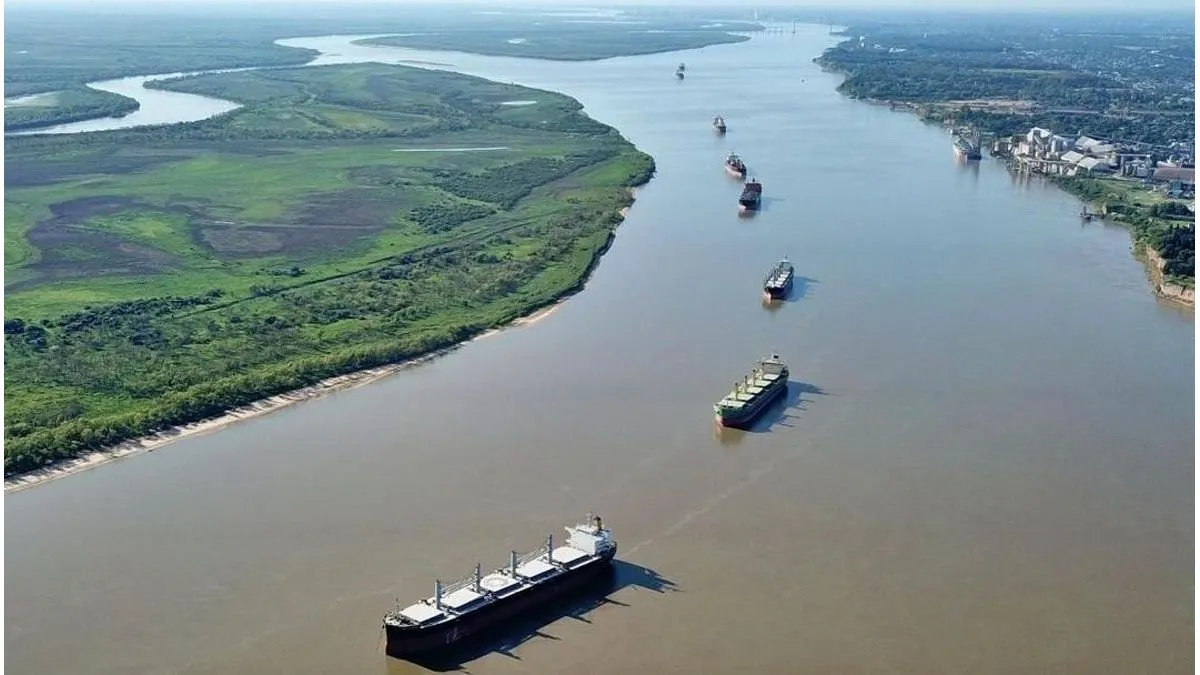
Two weeks before the opening of bids in the auction for the control of the Paraná-Paraguay Waterway, controversies have arisen between various companies and the Argentine Government. From the administration of Javier Milei, it is assured that the auction will continue unchanged and that on February 12, the bidders for the concession of dredging and maintenance of the waterway will be announced.
Deme and Rohde Nielsen have pointed out that the requirements set in the auction could favor the Belgian company Jan de Nul, the current concessionaire since 1995 and the main candidate to extend its contract. If Jan de Nul continues, it will be in charge of the dredging and maintenance of the main navigable waterway, among other functions.
The outcome of this auction will be crucial for the future of the Paraná-Paraguay Waterway, one of Argentina's main trade routes. Tensions are arising between the Government, private sector actors, and foreign diplomats. According to government sources, Macri's intention would be to favor Dutch companies.
Guillermo Dietrich, former Minister of Transport, has expressed his disagreement with the process, arguing that the criticism from his sector seeks for "Argentina to do well". It is expected that at least three companies will submit bids on February 12, thus validating the bidding process.
Boskalis has expressed its discontent, claiming that the Government seeks to benefit Jan de Nul to settle an 80 million dollar debt. The exclusion of the Chinese company Shanghai Dredging from the process has been criticized by experts and diplomats due to a clause that prevents the participation of companies with state capital.
The Government has defended the transparency of the auction and accused Mauricio Macri of obstructing it in favor of Boskalis. Both companies will appeal the judicial ruling that dismissed their request for a suspension of the bidding process. Deme, Rohde Nielsen, and Boskalis have stated their respective positions, creating tensions in the sector.
The Paraná-Paraguay Waterway is vital for the export of grains from Argentina and represents more than 80% of the exportable production of the agricultural sector.














